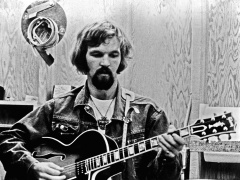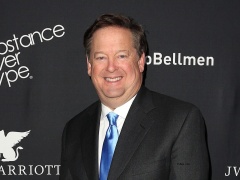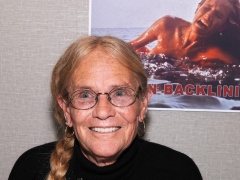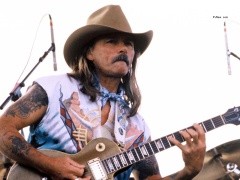
Rod Holcomb, an Emmy-winning TV director of “ER,” “Lost” and other series, died Wednesday in Los Angeles. He was 80.
Holcomb was best known for directing both the pilot and the series finale of “ER,” winning an Emmy for that farewell episode in 2009. He was nominated four four Primetime Emmys over his career, and also nominated for three DGA awards — winning one in 1995 for the “ER” pilot. Holcomb directed 21 pilots over his career, with the remarkable track record of 15 going to series.
“Every good director will elevate the material on the page. His job is to elevate it visually, to give it the weight of an art form,” Holcomb told PvNew in 2011. “In a way, it’s easier to determine with a show that you know very well as a viewer, and if you know the contours and the voice of the show, then you can more easily answer some key questions. Like, does the director make choices that have the maximum impact for the scene and the episode? Does the direction fully realize the potential inherent in the episode?”
Holcomb was also an active member of the Directors Guild, serving on the national board as an alternate between 2003 and 2013, and as a part of numerous negotiating committees between 1996 and 2014.
“The DGA deeply mourns the passing of Rod Holcomb – a visionary Director whose impact on television direction and the creative rights of television Directors cannot be overstated,” DGA president Lesli linka Glatter said in a statement. “Rod’s influence as a pilot director on shows like ‘China Beach’ and ‘ER’ among many others, resonated deeply with directors and audiences alike, leaving a cultural imprint. His pioneering use of Steadicam and other techniques brought a more cinematic style to television, helping establish a visual aesthetic that continues today.
“Yet his legacy stretches far beyond the lens. By dedicating himself to Guild service – including serving on seven negotiating committees and serving as the co-chair of the television creative rights committee – Rod fought to enshrine important protections so television directors could bring their own dynamic visions to life unfettered. We will miss his warm, steadfast presence and know his caring leadership and directorial mastery will continue inspiring directors for generations. Our deepest condolences to his wife, Jane and his family.”
After studying film at San Francisco State, Holcomb began his Hollywood career in the mailroom of ABC Studios. He was tasked with writing a promo for “The Six Million Dollar Man,” which led to him being hired on the show as associate producer. He directed serveral episodes of the series, then moved on to direct 1979’s “Captain America” film.
Holcomb moved on to direct a string of TV shows over the next two decades, including “Battlestar Galactica,” “B.J. and the Bear,” “Quincy M.E.,” “Fantasy Island,” “Beyond Westworld,” “Hill Street Blues,” “The Greatest American Hero” and the pilots for “The A-Team,” “Scarecrow and Mrs. King,” “The Equalizer,” “Wiseguy” and “China Beach.”
Later, he directed TV episodes including “The West Wing,” “Numb3rs,” “NCIS: Los Angeles,” “Justified,” “The Good Wife,” “CSI: Miami,” “Law & Order: LA,” “Rizzoli & Isles” and “Elementary,” in addition to “ER” and “Lost.”
Holcomb also directed many TV movies throughout his career, particularly in the 1990s, with titles such as “A Promise to Keep” (1990), “Finding the Way Home” (1991), “Convict Cowboy” (1995), “The Prosecutors” (1996), “The Underworld” (1997) “Thanks of a Grateful Nation” (1998), “Songs in Ordinary Time” (2000), “Hopewell” (2000), “The Pentagon Papers” (2003), “Code Breakers” (2005), “Bounty Hunters” (2005) and “The Way” (2006).






